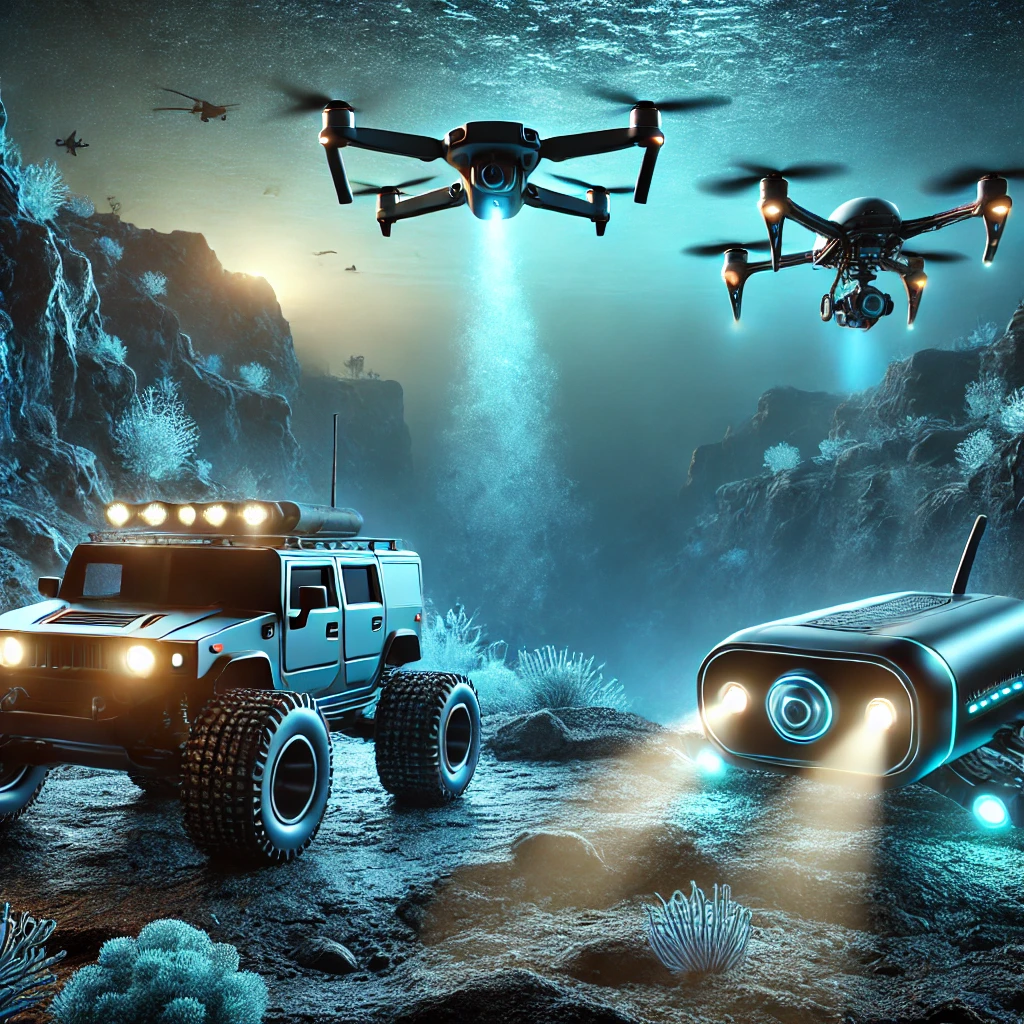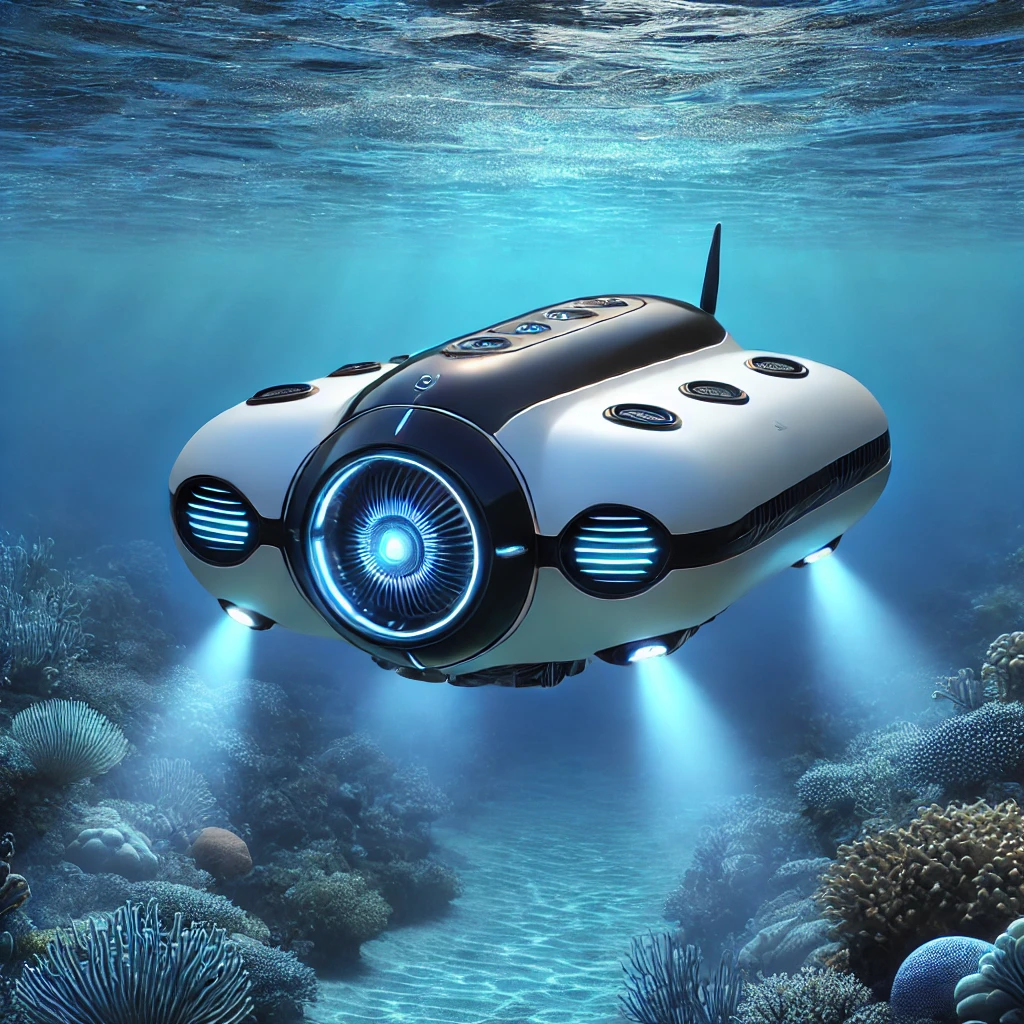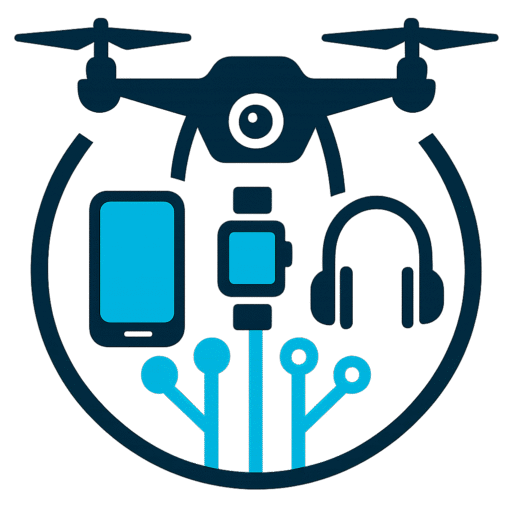
Land drones, also known as ground drones or rovers, are unmanned ground vehicles (UGVs) designed to operate on various terrains. They come equipped with wheels, tracks, or robotic legs and can be programmed for autonomous movement or controlled remotely.
History and Evolution of Land Drones
Early Developments
The first concept of land drones emerged in the mid-20th century, with early military robots designed for bomb disposal and surveillance.
During the 1980s, NASA began developing robotic rovers for planetary exploration, paving the way for modern autonomous ground vehicles.
Advancements in the 21st Century
AI and machine learning have significantly improved autonomous navigation capabilities.
Robotics companies like Boston Dynamics introduced advanced quadrupedal robots capable of navigating complex environments.
The rise of self-driving technology has expanded the commercial use of land drones in delivery and logistics.
Types of Land Drones
1. Wheeled Drones – Ideal for smooth terrains, used in warehouses and urban areas.
2. Tracked Drones – Designed for rough and unstable terrain, commonly used in military and exploration.
3. Legged Drones (Quadrupeds and Hexapods) – Offer superior mobility on uneven surfaces and are used in search and rescue missions.
Key Features of Land Drones
Autonomous Navigation: AI-powered pathfinding and obstacle avoidance.
Remote Operation: Controlled via wireless networks for real-time maneuvering.
Robust Build: Designed to withstand extreme conditions, including deserts, icy terrains, and outer space.
Advanced Sensors: Equipped with LIDAR, thermal imaging, and GPS for enhanced functionality.
Applications of Land Drones
Military and Defense
Reconnaissance and Surveillance: Autonomous land drones gather intelligence in hazardous areas.
Explosive Ordnance Disposal (EOD): Robots like TALON assist in defusing explosives.
Unmanned Combat Vehicles: Used for carrying supplies and engaging in combat.
Commercial and Industrial Uses
Warehouse Automation: Companies like Amazon use land drones for material handling and inventory management.
Autonomous Delivery: Firms such as Starship Technologies deploy ground drones for last-mile deliveries.
Agriculture: Land drones analyze soil health and automate crop monitoring.
Exploration and Research
Mars Rovers: NASA’s Curiosity and Perseverance rovers are pioneering extraterrestrial exploration.
Environmental Monitoring: Deployed in forests and remote locations to study ecosystems and wildlife.
Popular Land Drone Models
Boston Dynamics Spot – A quadrupedal robot used in industrial and military applications.
NASA’s Perseverance Rover – An advanced Mars rover for space exploration.
Starship Delivery Robot – An autonomous delivery drone for urban logistics.
TALON EOD Robot – A military-grade bomb disposal robot.
Future Trends in Land Drones
AI-Driven Autonomy: Improving decision-making for unmanned operations.
Swarm Technology: Coordinated multiple drone systems for large-scale tasks.
Hybrid Mobility Systems: Combining wheels, tracks, and legs for enhanced adaptability.
Regulatory Advances: Governments developing legal frameworks for safe land drone deployment.
Conclusion
Land drones are revolutionizing industries with their versatility and efficiency. Whether enhancing military operations, streamlining warehouse logistics, or exploring new frontiers, these unmanned ground vehicles are paving the way for the future of automation and robotics. As technology advances, land drones will become even more intelligent, capable, and indispensable across various sectors.




